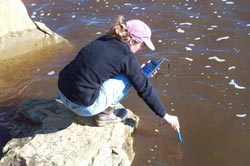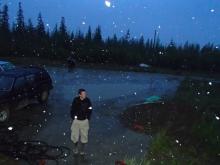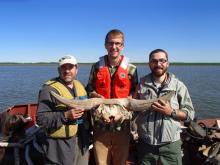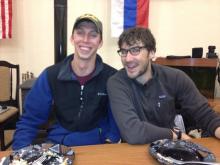Update
The Polaris Project participants hosted weekly webinars in preparation for their expedition. A public presentation given by Andy Bunn on climate change is now available in the PolarConnect Archives.
What Are They Doing?

Where Are They?

Latest Journals

Dr. Holmes is an earth system scientist with broad interests in the responses and feedbacks of coupled land-ocean systems to environmental and global change. Most of his current research focuses on large rivers and their watersheds and addresses how climate change and other disturbances are impacting the cycles of water and chemicals in the environment. Dr. Holmes has several ongoing projects in the Arctic (field sites in Russia, Canada, and Alaska) and has more recently begun working in Africa, Asia, and South America (Amazon, Congo, Ganges, Brahmaputra, and Yangtze watersheds). He has also studied desert streams in the southwestern United States, stream/riparian ecosystems in France, and estuaries in Massachusetts. He is strongly committed to integrating education and outreach into his research projects, particularly by exposing K-12 and undergraduate students to the excitement of scientific research.




